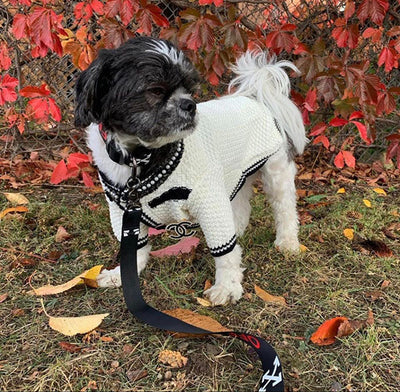It can be stressful to think about your dog getting older, but knowing the signs of aging and what you can do to prevent or slow it down will help ensure that you and your dog have many more years of quality time together.
Your dog's health is important to you, and so it should be! With just some attention to your dog's basic needs, you can ensure they will have a long, healthy life and live with you happily in your home. Here are some helpful tips to help you learn how to ensure your dog's long and healthy life.
Get Your Dog Vaccinated

Since dogs are susceptible to many of same diseases as humans, they should get vaccinated against them. Some of these illnesses include parvovirus, distemper, hepatitis, leptospirosis and rabies. Your veterinarian can also give you advice on how to best prevent other issues such as heartworm or fleas.
For instance, some dogs do not require monthly heartworm prevention; instead they only need an annual shot or once-in-every-few-years pill. Of course if you’re traveling in certain areas with mosquitoes (such as near water sources), then that’s a different story for another time!
The main thing is that you know what’s out there so that you can make educated decisions about your pets health.
Brush Their Teeth

A good way of ensuring that our dogs live longer, healthier lives is by maintaining regular dental care. It’s often said that you can tell a lot about an animal’s health from its teeth – so regular brushing can prevent tooth decay, improve their breath and reduce build-up of tartar on their teeth.
It's also thought that 30% of all dogs aged between three and six years have gum disease, which is linked to low self-esteem and depression. Brushing every other day with a soft toothbrush will help keep them happy!
Exercise Them Regularly

Dogs are naturally active animals, so it can be tempting to let them off-leash in a fenced-in yard. However, it’s important for dogs to get exercise on leash as well. Not only is walking great for their physical health, but also provides you with more time spent together.
This doesn’t have to mean spending hours of your time either. Small walks throughout each day are plenty!
Make Them Take a Nap

Stressed out dogs are more likely to be anxious or even aggressive, making them much less pleasant pets. And while we all know how cute our little puppers can be, we should also recognize that tired dogs make better pets.
Your pup’s nap time is not something you need to enforce—it comes naturally. When your pooch wakes up from his nap (and trust us, he will) take him on a short walk and then put him right back down for another short rest.
A few short naps throughout the day can go a long way in helping your fur baby chill out just enough for you to enjoy snuggling with him later that night!
Make Sure They Have Toys to Play With

Dogs love playing with toys, so make sure they have plenty of them around. Not only do they provide mental stimulation, but they can also help with physical stimulation. They’re also great for redirecting destructive energy when your dog doesn’t know what else to do.
Finally, try mixing in food as an incentive when you play with your pup; it will keep them engaged in play longer!
Train Them on The Basics
The best way to do that is with positive reinforcement training. If you’re wondering whether you can train your dog without any kind of treats or toys, you can—but it will be much harder.
Negative reinforcement (yanking on a choke chain) doesn’t teach dogs anything besides fear. Instead, focus on positive reinforcement (giving them treats for sitting still or lying down), or at least rewarding good behavior with affection. But just as humans need more than one type of fuel, dogs also benefit from different types of enrichment during their lives, including new sights and sounds, exercise, and socialization.
Expose them to new things in small doses so they don’t get overwhelmed or bored.
Learn About Diet and Nutrition for Dogs

The first step in ensuring your dog’s health is to learn about proper diet and nutrition. It’s important to understand what ingredients are used in pet food, how vitamins affect our pets, and how additives can damage their bodies.
For example, did you know that maltodextrin is actually made from corn? This means that it may contain high levels of gluten which can cause inflammation for some animals.
Many animal lovers don’t consider an animal's diet as one of their top priorities, but it's necessary if you want them to live a long, happy life.
That was it for this blog. We hope you'll find it helpful. Share it with your near and dear ones. For more blog stay tuned.

You can follow us on
Instagram: Drippetboutique
To stay updated about the trends.
Subscribe to our email listing to keep yourself updated with the upcoming blogs.
Peace Out



